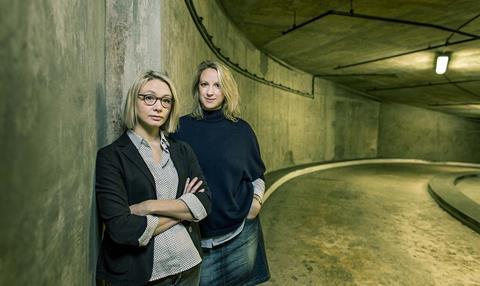
The co-directors of the British Independent Film Awards (Bifas) have revealed the funding challenges the organisation is facing as it launches the second Springboard programme to support producers.
“We’re facing a very challenging funding environment,” said Amy Gustin and Deena Wallace, co-directors of the organisation, in a joint interview with Screen.
“We have no core funding and the income from the awards doesn’t cover the year-round costs of the organisation. Programmes like Springboard, our ED&I training, or the post-Covid audience development work that was supported by the BFI Audience Fund were project-based and time-limited.”
Bifa runs year-round training and development activity as well as the annual December awards ceremony.
About 90% of Bifa’s income comes from the awards ceremony, through sponsorship, ticket sales and entry fees. The money covers the cost of production of the event, but not the overhead cost of the team to deliver it, or other work to support film talent or audience development.
Bifa’s sponsorship partners include BBC Film, Film4, Pinewood, Sky Cinema, Intermission Film and Kodak, as well as US platforms Netflix and Apple, which “want to support the essential role that independent film plays as a talent incubator,” said Gustin and Wallace.
“We have loyal partners who understand and value this mission and support us every year,” say the duo. “But each year we face a funding deficit; just presenting the awards is a struggle, let alone enabling Bifa to reach its potential as a powerful, ever-present ally and champion for independent film and filmmakers.”
A not-for-profit organisation since its founding in 1998, Bifa was converted to a Community Interest Company in 2022, meaning all income generated through the awards goes back to serving the community it represents, of independent filmmakers and the audiences for those films.
Second-time producers
Bifa is able to run the 2024 iteration of its Springboard support programme due to backing from the ScreenSkills Film Skills Fund and The Wiggin Charitable Foundation, with a grant in the name of Miles Ketley, Bifa committee member and CEO of UK production company Stolen Picture who died in 2020.
The 2024 Springboard run is specifically for second-time feature producers, aiming to provide the knowledge, connections and skills for them to work with bigger budgets, greater financier demands, and more complex sales, distribution and talent management.

“We’re hearing time and time again how producers are often under-supported, under-resourced, being asked to defer fees in order to get productions off the ground, being left mentally and physically exhausted and ultimately giving up on film as a career,” said Gustin and Wallace.
“As an industry we need to rally together to better support and equip our producers so they can continue to bring brilliant British stories to our screens.”
Launched in 2020, the Springboard programme was originally also for writers and directors, but has been scaled back due to the funding challenges. Gustin and Wallace say they would love to resurrect the parallel tracks for other filmmakers.
“We know, and the wider industry knows, as we’re hearing in the CMS committee evidence, that this kind of work, supporting exceptional new talent and championing British independent film to audiences, is really important and as an industry we need to be using every tool at our disposal to nurture and promote British independent film and talent,” they said.
“The blend of expert guidance and practical training in both the creative and commercial aspects of production will provide crucial support for fiction producers as they embark on their second-feature films,” said Emma Turner, head of film, animation and future skills at ScreenSkills. Turner said the organisation’s backing “underlines the commitment of the Film Skills Fund to addressing skills shortages and gaps in the UK film sector.”
The return of Springboard coincides with the latest producer support programmes from BFI Doc Society, which last month launched its Rise Producer Programme to offer six months of guidance for four emerging first-time feature documentary producers.
The organisation also runs Producing Truth, a programme for 12 mid-level feature producers based in Wales, Scotland, Northern Ireland and England outside London.
“With the volatile state of markets, and distribution, there’s no single model of sustainable production,” said Luke Moody, head of the BFI Doc Society Fund. “The Producing Truth programme is intended to provide a spectrum of beacons and strategies for independent feature doc producers… to encourage more UK-wide collaboration, and consider how doc producers can better look outward to international co-production.”
Partners on the programme include Docs Ireland, the Scottish Documentary Institute and Screen Alliance Wales.
Andrew Haigh’s All Of Us Strangers was the big winner at the 2023 Bifas with seven prizes, including best British independent film, best director and best screenplay.






![The Brightest SunScreen[Courtesy HKIFF]](https://d1nslcd7m2225b.cloudfront.net/Pictures/274x183/3/5/0/1448350_thebrightestsunscreencourtesyhkiff_312678.jpg)


















No comments yet